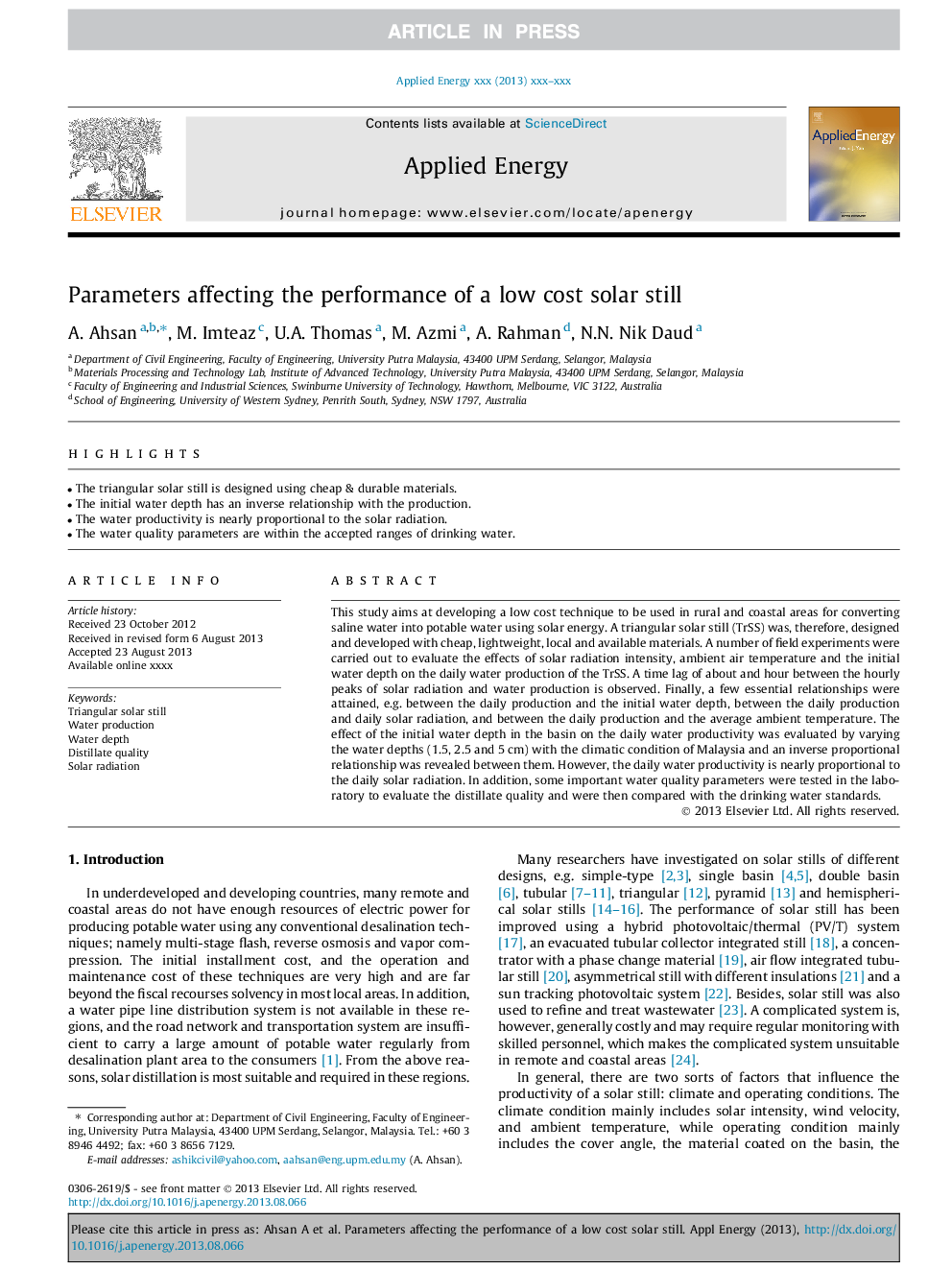| Article ID | Journal | Published Year | Pages | File Type |
|---|---|---|---|---|
| 6691832 | Applied Energy | 2014 | 7 Pages |
Abstract
This study aims at developing a low cost technique to be used in rural and coastal areas for converting saline water into potable water using solar energy. A triangular solar still (TrSS) was, therefore, designed and developed with cheap, lightweight, local and available materials. A number of field experiments were carried out to evaluate the effects of solar radiation intensity, ambient air temperature and the initial water depth on the daily water production of the TrSS. A time lag of about and hour between the hourly peaks of solar radiation and water production is observed. Finally, a few essential relationships were attained, e.g. between the daily production and the initial water depth, between the daily production and daily solar radiation, and between the daily production and the average ambient temperature. The effect of the initial water depth in the basin on the daily water productivity was evaluated by varying the water depths (1.5, 2.5 and 5Â cm) with the climatic condition of Malaysia and an inverse proportional relationship was revealed between them. However, the daily water productivity is nearly proportional to the daily solar radiation. In addition, some important water quality parameters were tested in the laboratory to evaluate the distillate quality and were then compared with the drinking water standards.
Related Topics
Physical Sciences and Engineering
Energy
Energy Engineering and Power Technology
Authors
A. Ahsan, M. Imteaz, U.A. Thomas, M. Azmi, A. Rahman, N.N. Nik Daud,
